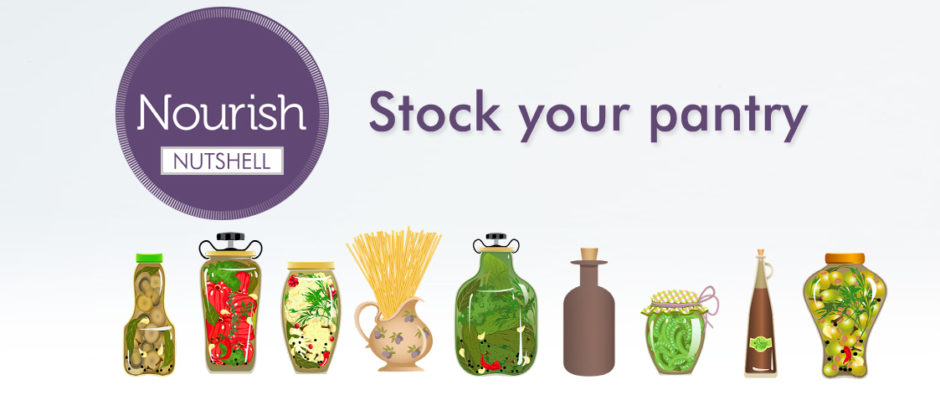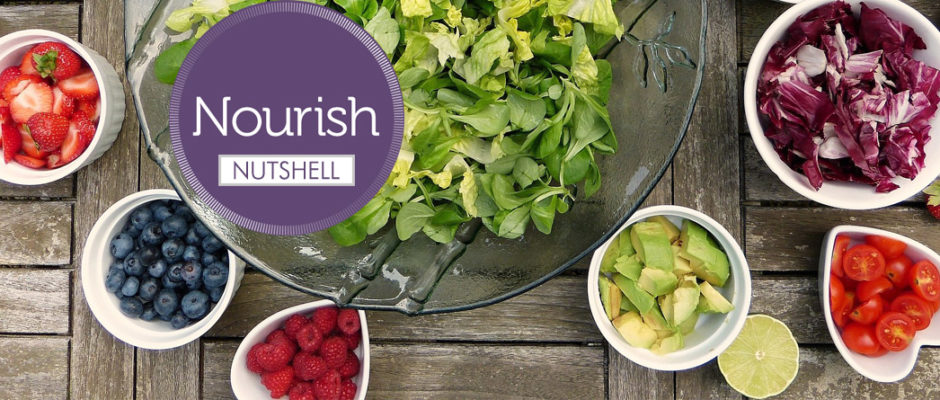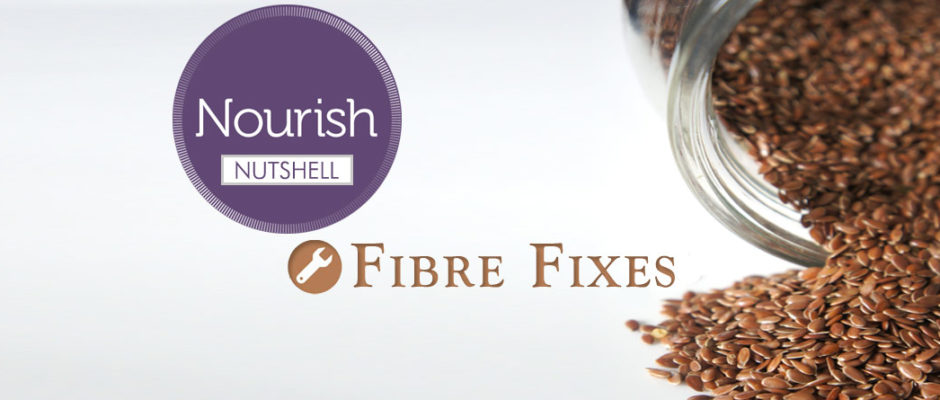FIBRE, also known as roughage or bulk, is the part of plant food that is not digested or absorbed by the body. Fibre helps improve bowel regularity, feeds the gut’s healthy bacteria and supports absorption of nutrients. Adults need a minimum of 28 grams of fibre every day. That may sound like a lot, but […]
Archive | Tips RSS feed for this section

Stock your pantry
FOODS TO HAVE IN STOCK Use foods listed below to create simple and satisfying quick meals or snacks on days you want to limit time in the kitchen. Aim for food from three food groups (fruits or vegetables, grains, protein-rich foods). Condiments and additional food items are in black font. When appetite is limited: • […]

What does “choosing less processed foods” mean?
Written by Sarah Buchanan, RD and Pamela Klassen, RD Canadians get almost 50% of their daily energy from ultra-processed foods; eating too many of these foods is associated with poor overall health.1 Less processed or minimally processed foods are foods that are close to their original form, and have only been altered to extend their […]

Cancer related fatigue
Staying well-nourished with cancer-related fatigue. Meal planning, grocery shopping, food preparation and even eating all require energy – something many of our readers may be lacking. In this issue, we will provide you with strategies to keep yourself well-nourished when you are tired – it is very possible to do! Cancer-related fatigue is the most […]

Ask the Dietitian
Organic Foods Should I go organic? The term “organic” doesn’t necessarily mean healthy. Organic is simply a label for foods that are grown without synthetic pesticides, fertilizers or genetic modifications. Is it worth the extra money? Organic foods are usually more expensive. But are they more nutritious? Some studies have shown that organic foods are […]

